The 6 Innovate UK Young Innovators Award winners that have developed pioneering assistive tech
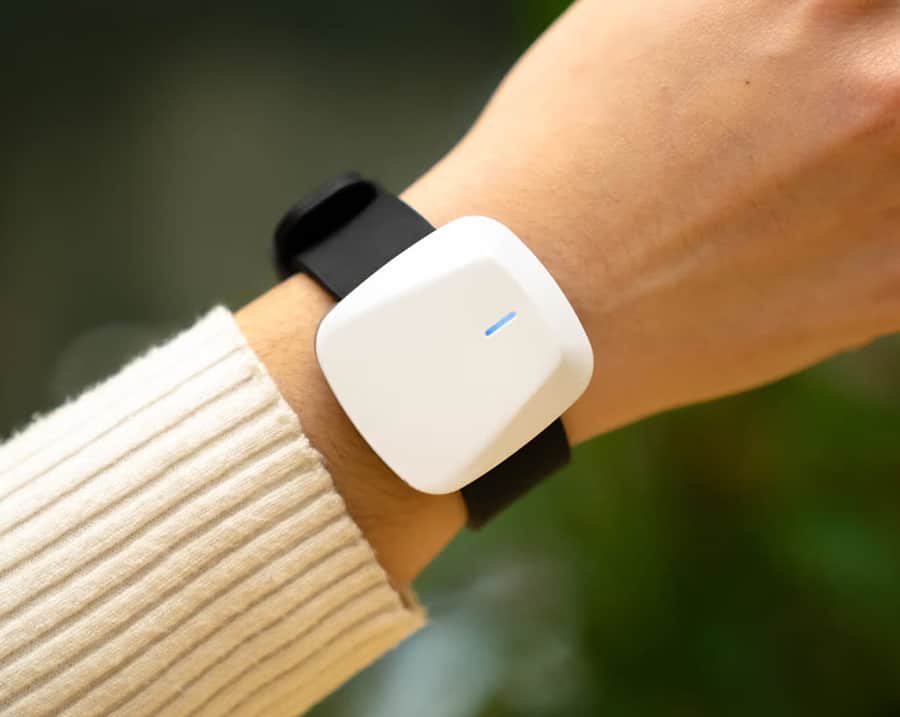
A portable seat raiser for people with reduced mobility, an augmented reality smartphone app to support stroke rehabilitation, and an affordable 10-line braille display are all winning solutions from UK Research and Innovation’s (UKRI’s) Innovate UK Young Innovators Awards.
UKRI has revealed the 94 winners of the Innovate UK Young Innovators Awards. They will receive £1.25 million in grants to help tackle some of the UK’s biggest societal challenges.
The Young Innovators Awards recognise a diverse cohort of entrepreneurs from every nation and region of the UK. Each inspiring young person will benefit from a £5,000 grant, one-on-one business coaching, and an allowance to cover living costs.
Although the awards span a diverse range of categories, such as space, chemistry, and transport, there were a number of assistive technology invention winners revealed under the health category.
Indro Mukerjee, CEO Innovate UK, said: “The Innovate UK Young Innovators program is an important part of our many activities to strongly develop the talent pipeline needed to further drive our innovation nation. I warmly congratulate all the Young Innovators Award winners and look forward to keeping in touch as they progress.”
Below, AT Today has covered which assistive technology innovators were named winners at this year’s Innovate UK Young Innovators Awards.
Portable seat raiser for people with reduced mobility
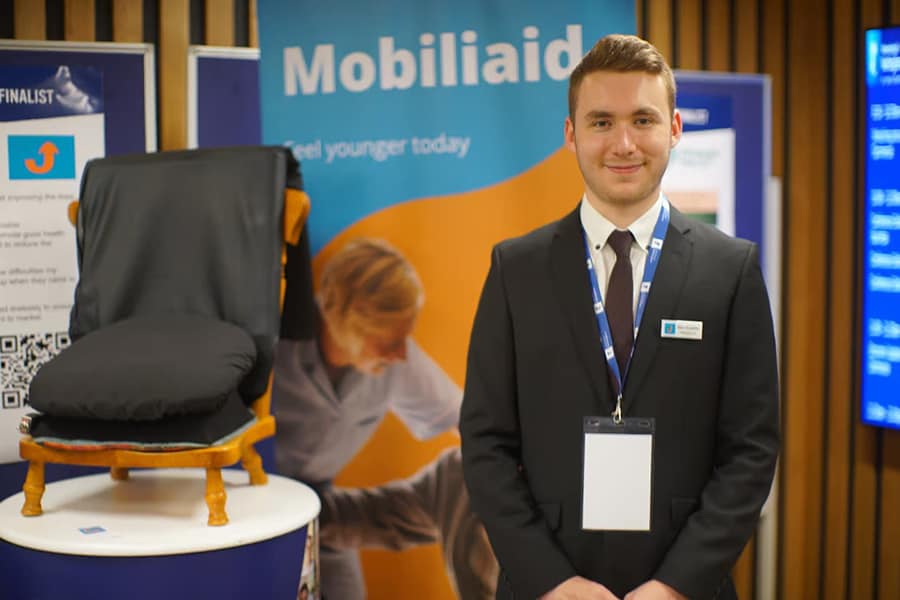
Ben Keeble’s business, Mobiliaid, is based on his grandfather’s experiences. Socialising became increasingly challenging for his grandfather when he started to struggle with sitting and standing. As a result, he was not able socialise, which led to loneliness, isolation, and a deterioration in his physical and mental health.
Mobiliaid is a mobile seat raiser that allows a person with mobility issues to sit and stand from seats when they are out and about. The product can fit on any chair, is quick to set up, and is transportable.
After developing a proof of concept, Ben’s product is now going through the final stage of prototyping.
Handheld therapy device for people who have had a stroke or have dementia
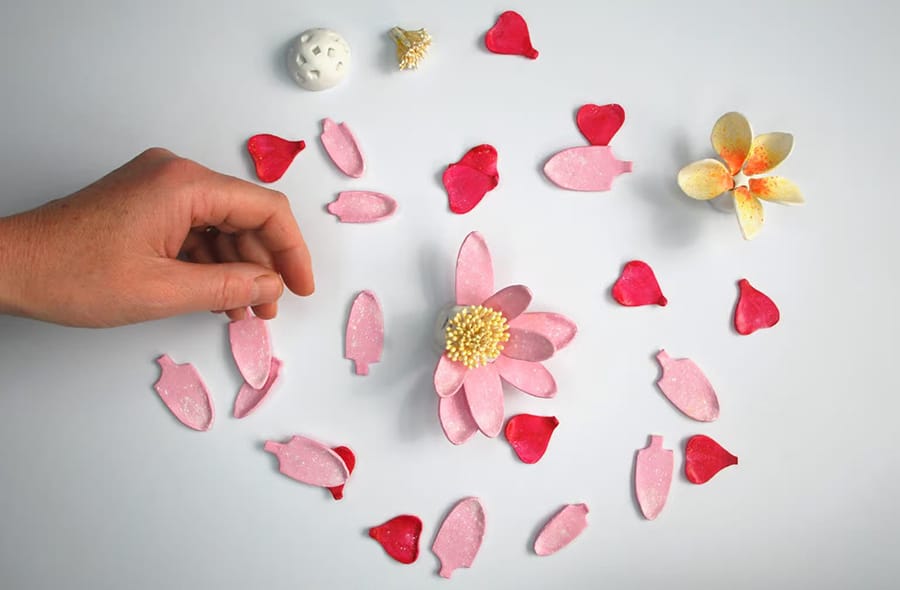
Orlando Ely started Blossom after witnessing two family members struggle with dementia and the aftereffects of a stroke, which prevented them from doing activities they loved.
Blossom is a handheld therapy device that consists of three buildable flowers at the initial stage. The flowers are constructed using cognitive function and fine motor skills, which are vital to regaining the ability to live independently.
The device combines pattern and nature. As Orlando explains, pattern stimulates the brain and provides positive associations with the natural world. This combination has proven psychological benefits and can be utilised by therapists and individuals at home, care homes, or hospitals, according to Orlando.
Orlando is now refining his prototypes with 3D printing. He plans to undertake further testing with medical professionals and patients to finalise the functional aspects of his design.
Multi-line braille display
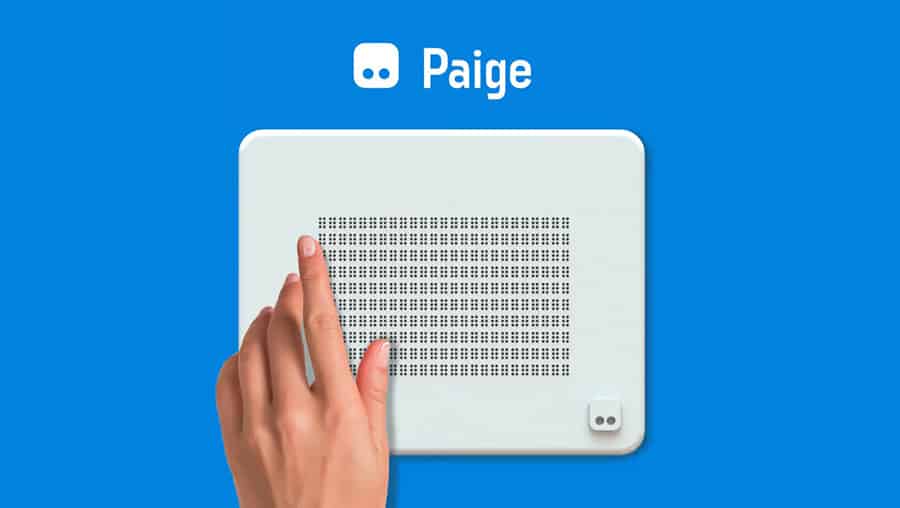
Gregory Hargraves started Paige Braille to create a product that would enable affordable access to braille and transform braille literacy worldwide.
The company is creating a multi-line braille display, which uses novel design to significantly reduce the cost per character. Paige Braille creates 10 lines, each with 20 characters of braille, which can be used for reading, writing, or maths.
Gregory hopes the dedicated business support from the Young Innovators Award will help the business with its next phase.
Smart medication reminders
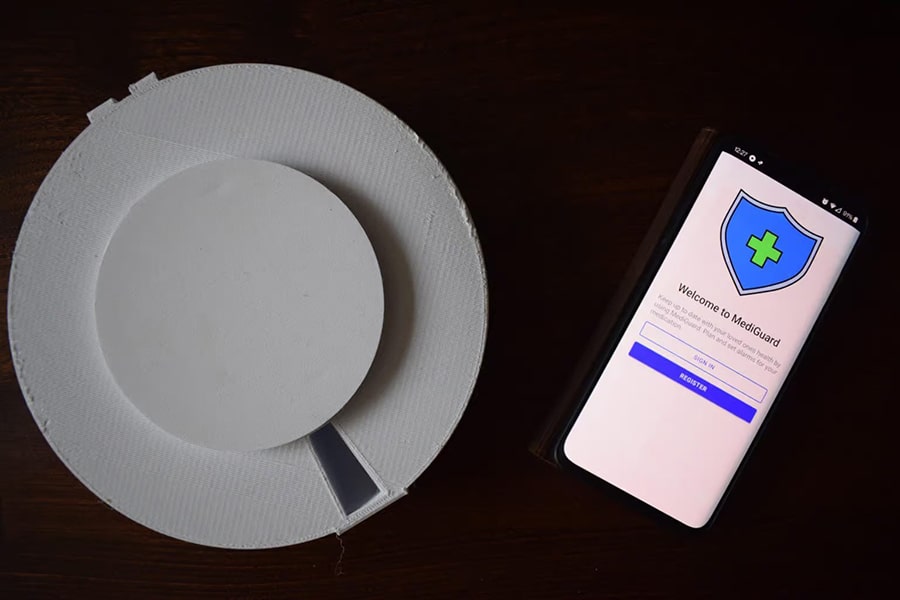
James Biltaji started MediGuard after his dad had a liver transplant. His dad had to take a dozen different pills a day but struggled to take them on time or would end up accidentally double dosing.
James wanted something that would help his dad take his medication independently and developed the MediGuard Smart Pillbox, which combines the electronic components of a pill dispenser with a mobile app. It can be used to set alarm times; store medications, dosages, and frequencies; record adherence; and notify users and carers.
Currently in the prototyping phase, James has developed most of the mobile app and coded electronics to go inside the device. His next step is designing and creating a physical prototype so he can start testing it with users.
Wearable mouse for people with limited dexterity

Zhey Grudov was forced to resign from his job in IT consulting when he began to experience severe pain in hands.
He tried a range of treatment and assistive devices but could not find a way to use his computer painlessly. He started Feathertail as a result, which allows those with limited dexterity to interact with technology without issues.
Feathertail is a wearable ergonomic mouse that fits around the wearer on their wrist, shoe, or headset. The customisable easy-to-use device is currently in the working prototype stage and being refined before launch.
Zhey’s long-term ambition is to develop more products to support people with limited dexterity.
Augmented reality app for stroke rehabilitation
Silvia Lin’s uncle’s life changed dramatically after having a stroke. His rehabilitation process was long and slow, and Silvia noticed that the lack of a decent support system greatly affected his motivation.
After conducting interviews and focus groups, she realised that the need for long-term cognitive rehabilitation support for stroke patients is a widespread problem.
This led her to create Tycho MedLink, a mobile app to support cognitive rehabilitation of stroke patients. Using immersive augmented reality (AR) experiences, the app helps patients relearn everyday tasks remotely and perform rehabilitation tasks without additional equipment.
The early-stage prototype can personalise the experience through an algorithm. It creates a unique set of tasks from a library, based on individual goals.

